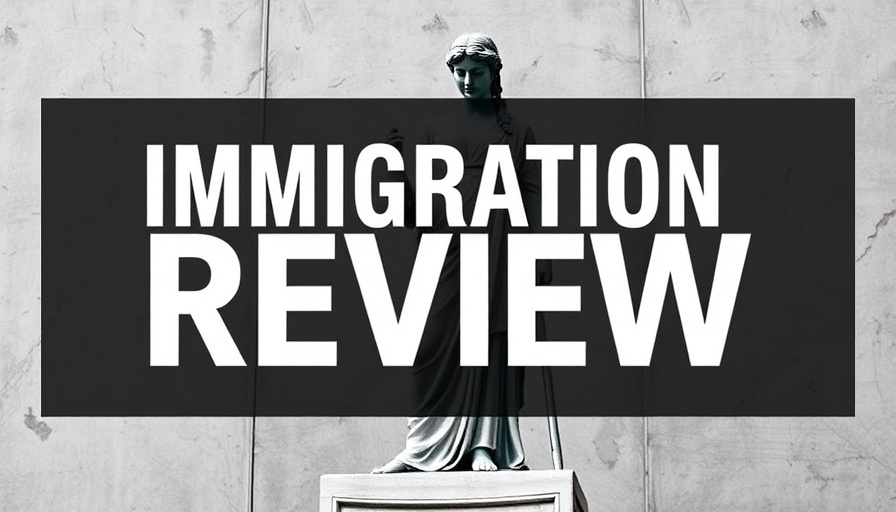
Precedential Decisions Affecting Immigration Practices: Key Takeaways
In the realm of immigration law, understanding the latest case rulings is crucial for practitioners navigating the complex system. Each week, immigration attorney Kevin A. Greg distills the critical updates, providing insights into appellate decisions that have far-reaching implications. This article breaks down significant cases presented in Greg's podcast episode on July 28, 2025, emphasizing how these rulings can influence defense strategies and client outcomes.
In ‘Ep. 275 - Precedential Decisions from 7/28/2025 - 8/3/2025’, Kevin A. Greg reviews significant immigration cases, prompting this deeper analysis of their implications for legal practitioners.
Understanding the Impact of the Matter of Felix Figareroa
The Board of Immigration Appeals (BIA) case, Felix Figareroa, tackles the contentious issue of isomers in drug possession statutes. This decision shifts the burden back onto non-citizens, establishing that they must prove realistic probabilities of state convictions that are categorically broader than federal definitions. For many immigration attorneys, this ruling complicates the defense strategy against removability claims, as it requires a deeper dive into state laws and the chemical nuances of substances like methamphetamine. The ruling is critical as it potentially creates a circuit split by dismissing the realistic probability test in favor of a more stringent categorical approach.
Case Study: Rivera Seamayola v. Bondi – The Importance of Documented Evidence
Another noteworthy case, Rivera Seamayola v. Bondi, highlights the necessity for well-documented evidence when claiming exceptional hardship for cancellation of removal. Here, the First Circuit ruled that Mr. Rivera's situation—his children's health and well-being—did not rise to the legal threshold of “exceptional and extremely unusual hardship.” This case serves as a reminder for immigration attorneys to meticulously compile supporting documents that specifically illustrate how removability will impact their clients and their families. Failure to do so can mean the difference between a successful plea for relief and a rejection.
The Onus on Asylum Seekers: Raal v. US Attorney General
In Raal v. US Attorney General, the Third Circuit addressed significant due process challenges concerning the one-year asylum filing deadline. The case revealed the complexities surrounding late filings and extraordinary circumstances that can excuse such delays. The court's rejection of Mr. Raal's claims emphasizes the heavy burden placed on asylum seekers to be aware of and comply with procedural requirements. For attorneys, this raises the stakes for proactively informing clients about timelines and filing logistics during initial consultations.
A Cautionary Tale: Navaro v. Bondi and Credibility Issues
Turning to Navaro v. Bondi, we see the profound implications of credibility assessments in immigration cases. The Fourth Circuit criticized the immigration judge's previous ruling, emphasizing the importance of accurately presenting all documents and maintaining consistency. Non-citizens should be acutely aware that any discrepancies in their testimonies or applications could hinder their chances, especially in high-stakes environments like asylum claims. This ruling serves as a lesson to attorneys about the weight of testimony and the critical nature of honesty and thoroughness in submissions.
What These Cases Mean for Future Representation
As immigration attorneys closely monitor these evolving legal landscapes, understanding the nuances in each decision can equip them for more effective client representation. The necessity for solid documentation, awareness of statutory obligations, and an understanding of how chemical classification can affect removability are critical points to integrate into practice. These decisions highlight the intricate balance of immigration law and the importance of being thoroughly prepared when representing clients.
In this fast-paced and changing landscape, staying informed about relevant case law can empower immigration attorneys and ultimately better serve their clients. For more insights into these cases and their implications on immigration law, subscribe to the Immigration Review Podcast.
 Add Row
Add Row  Add
Add 




Write A Comment